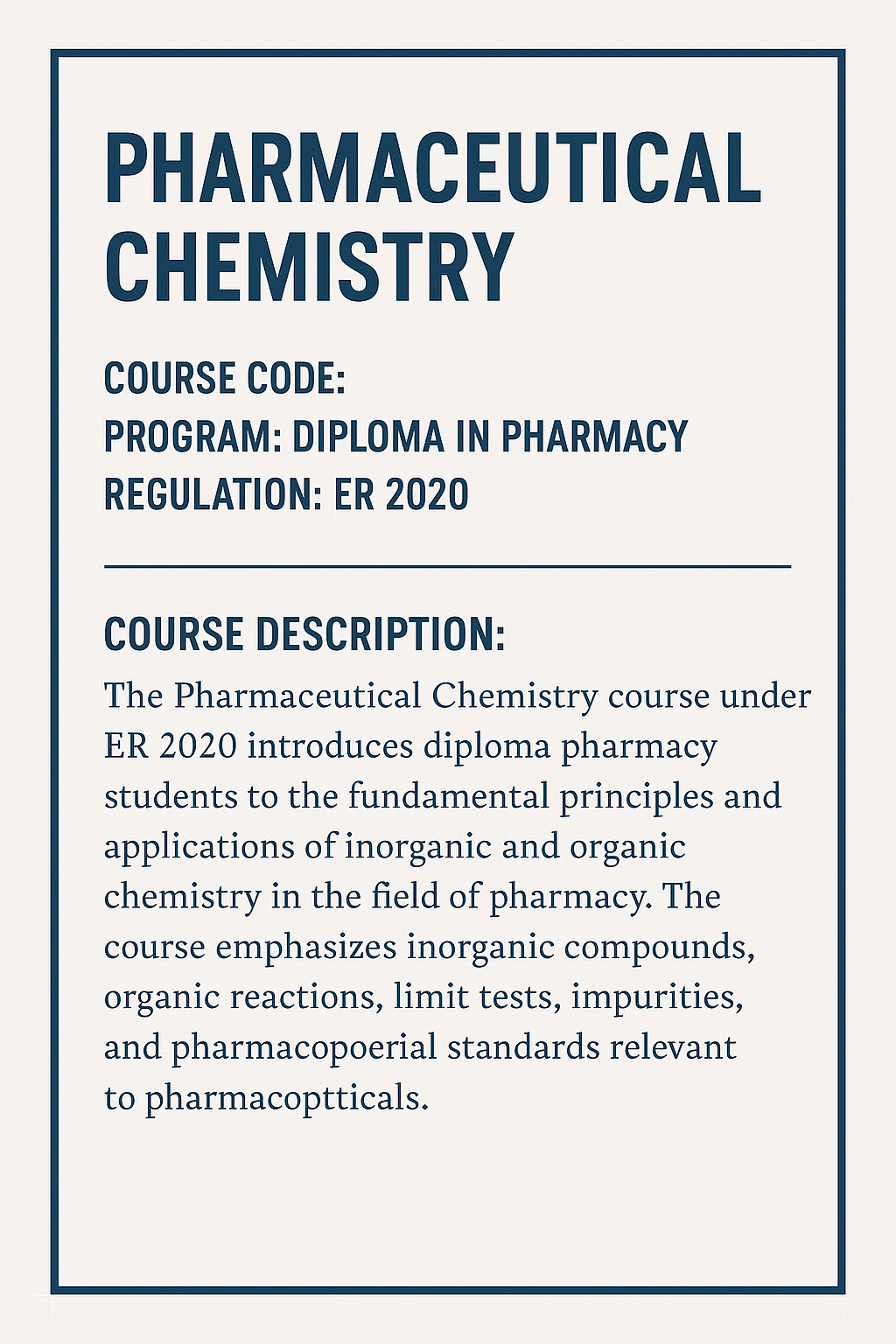
Biochemistry and Clinical Pathology
Scope: This course is designed to impart basic knowledge on the study of structure and functions of biomolecules and the chemical processes associated with living cells in normal and abnormal states. The course also emphasizes on the clinical pathology of blood and urine.
Course Objectives:
This course will discuss the following at the fundamental level
1. Structure and Functions of biomolecules.
2. Catalytic activity, diagnostic and therapeutic importance of enzymes
Metabolic pathways of biomolecules in health and illness (metabolic
disorders).
3. Biochemical principles of organ function tests and their clinical
significance Qualitative and quantitative determination of biomolecules /
metabolites in the biological sample
4. Clinical pathology of blood and urine
Course Outcomes:
Upon successful completion of this course, the students will be
able to
1. Describe the functions of biomolecules
2. Discuss the various functions of enzymes in the human system
3. Explain the metabolic pathways of biomolecules in both physiological and
pathological conditions
4. Describe the principles of organ function tests and their clinical significances
5. Determine the biomolecules / metabolites in the given biological samples,
both qualitatively and quantitatively
6. Describe the clinical pathology of blood and urine
- Teacher: Dr. Prabodh V. Sapkale
